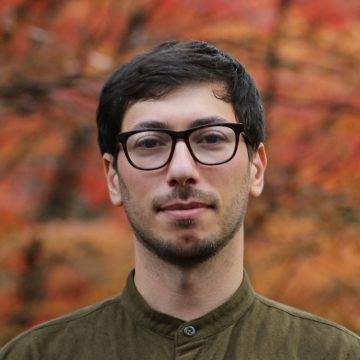
Social Implementation
Giorgio Salani
Specially Appointed Assistant Professor
Craft studiesCeramicsSustainable craftPottery making
Biography
Giorgio Salani received a master’s degree in Environmental Engineering from La Sapienza, University of Rome, Italy, in 2003, with a specialization in urban studies and a dissertation on water management informed by research conducted at the Indian Institute of Management, Gujarat, India. In 2004, he received a master’s in Urban Studies in Development Contexts from the International University of Catalunya, Spain, with a dissertation on sustainable housing, and moved to the UK to pursue a professional career. After 2 years working in logistics, he joined Intelligent Space Partnership, a start-up working in pedestrian modelling and urban analysis. The company was soon acquired by Atkins Ltd., the largest engineering group in the UK, and he joined the transport department as an engineering consultant. In the next 8 years he would work as a consultant or project manager on numerous urban development projects, pedestrian strategies, cycling strategies, design evaluations and wayfinding schemes. His experience in design and interest in art practices led to a PhD in Craft and Design at Central Saint Martins, University of the Arts London, for which he was granted a full scholarship from the Arts and Humanities Research Council (UK) in 2015. The study offers an innovative taxonomy of pottery making practices that integrates archaeological theory with methodologies of social science and design studies. Salani moved to Tokyo in 2016, completed his PhD in 2019 and lectured at multiple colleges in the Tokyo area. His international experience across art, design and engineering disciplines led to his current position as WRHI Specially Appointed Assistant Professor at Tokyo Tech, in Prof. K. Nohara’s group.
Expectations for WRHI
The STADHI Satellite Lab is based on a collaboration between artists and designers from Central Saint Martins college (UK) and scientists and engineers from Tokyo Tech. My personal connections with both universities can be used to facilitate communications and generate new opportunities for collaboration. In terms of research, craft ceramics are ideally suited to provide a space for interactions across national and disciplinary boundaries that can produce technological innovation, benefit the teaching of technical subjects, and inspire original artwork.
| 2020- | Specially Appointed Assistant Professor, School of Environment and Society, Tokyo Institute of Technology |
|---|---|
| 2020- | Part-time Lecturer, Tokyo Medical and Dental University |
| 2020- | Part-time Lecturer, Tokyo University of Foreign Studies |
| 2020- | Part-time Lecturer, Saitama University |
| 2014-2019 | Doctoral Researcher, Central Saint Martins, UAL, UK |
| 2019 | Salani, G. (2019) Ceramic Art Bizen in Shizutani, Okayama, Japan, 20th and 21st October 2018 in Craft Research, Vol. 10, No. 1, pp. 133-143. |
|---|---|
| 2018 | Salani, G. (2018) The use of video as an analytical and reflective tool in ceramic training, in Spark Journal, Vol. 3, No. 2, pp. 172-178. |
| 2018 | Salani, G. (2018) Salience in the making of contemporary hand-thrown tableware: an analysis of ribbing, in Ferris, M. (ed.) Making Futures, Volume 5. |
| 2018 | Harvey, B., Salani, G. (2018) “The Craft Readers”, Making Futures, Volume 5, University of Plymouth, pp. 1-6, 2018. |
| 2015 | Salani, G. (2015) Mapping British pottery, in Proceedings of UD15: Periphery and Promise. 4th PhD in Design Forum. University of Porto, 19 + 20 Oct 2015, pp.213-221. |
